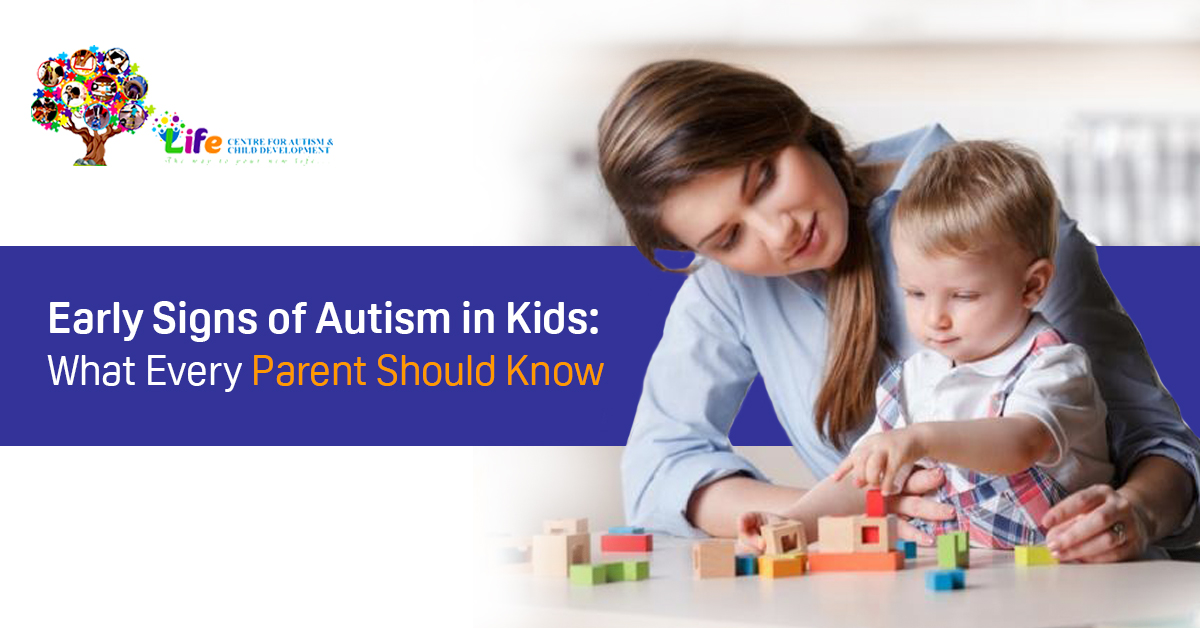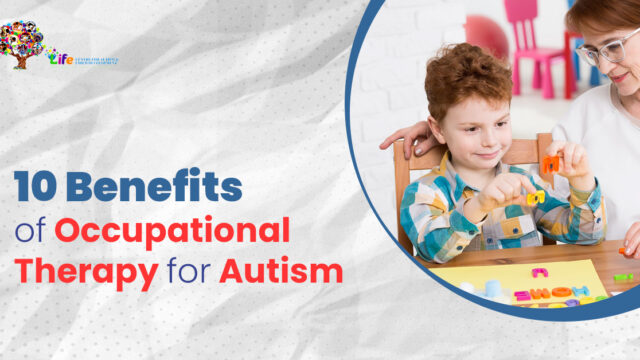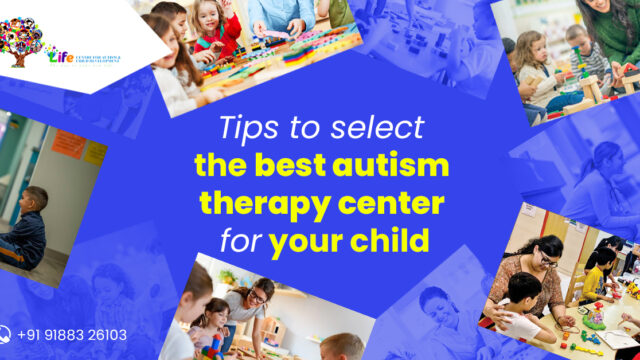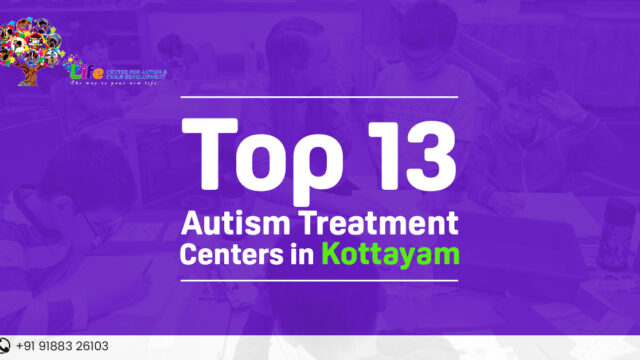Introduction
Autism, also known as autism spectrum disorder (ASD), is a neurobiological condition that challenges a child’s speech, language, social behavior, and more. There are a few early signs of autism, including poor performance in social settings, repetitive behavior, a lack of interest, and a poor span of focus.
As a child grows, Autism can affect different abilities and needs. While a majority of individuals face problems with understanding non-verbal cues and emotional expression, some may also have overwhelming sensory sensitivities.
Early signs of autism are visible at the age of 18 months. However, many times parents fail to identify the problem, and it is discovered after a while. Autism is a lifelong condition that causes day-to-day problems in one’s life. A wide range of functional impairments are possible, which differ from one person to another.
The early signs of autism include several behavioral and communication shortcomings. A child with autism can find it hard to communicate and engage with other children. They may also face difficulty expressing themselves. Moreover, they may feel uncomfortable in a crowd, or with loud noises. It is common for children with autism to get anxious faster and more frequently than other children. Classic early signs of autism also include repetitive behavior, wherein a child repeats an activity or speech over and over.
It is important to understand that autism is not an illness but a developmental condition in which the brain of an individual does not work conventionally. Autistic people can enjoy their lives just like any other individual and enjoy the same life expectancy. However, it is important to seek help from one of the best autism treatment centers to ensure the child does not have to face the challenges related to Autism alone.
In this blog, we will talk about autism in detail, including early signs of autism, what causes the condition, its diagnosis and solution, as well as how the Life Center for Autism can help your child.
How can Autism develop in children?
Understanding the factors contributing to autism in children is a complex task. While no single cause can be pinpointed, both genetic and environmental factors play significant roles in weakening brain function and affecting behavior, communication, cognition, and related brain functions. Despite the various factors involved, early signs of autism and its progression tend to be consistent in most cases. Early detection and intervention are crucial, and an autism assessment center can offer effective treatments.
1. Family history of this condition
The genetics behind the autism condition are strong, and thanks to autism genetics research, it has been found that in the majority of cases, autism is passed on from one generation to another. Sadly, testing for genetics to identify autism is not yet possible, but it can be easily managed and treated using different therapies, including occupational therapy for autism, play therapy for autism, speech therapy for autism, and more, at an advanced autism center for treatment.
2. Premature babies
The gestational age of a baby at the time of both is an important factor leading to autism in children. The earlier a child is born, the higher the chance of them developing autism. More than 6% of babies and more than 2.6% of babies have autism and are born between 22 and 27 weeks and 28 and 33 weeks, respectively. The stress of premature delivery is a lot for the vulnerable brain, which might get affected and develop autism.
3. Environmental factors
There are a range of environmental factors that can lead to the development of autism in children. This includes medication taken at the time of pregnancy or any other complication during pregnancy that might have instigated brain damage to some extent but not enough to cause autism. The most common environmental factors considered a factor in autism include:
- Toxicants in the environment include heavy metals like mercury and lead, air pollution of all kinds, and pesticides.
- Autoimmunity in the mother
- Obese mother or a diabetic mother
- Old-aged parents at the time of conception
- Medication used at the time of pregnancy, including valproic acid and more
- Viral infections in the mother
- Bacterial infections in the mother
- Low birth weight and more
Early signs of Autism up to 3 years old
Recognizing the early signs of autism is crucial for ensuring your child receives the care they deserve. Often, parents overlook their children’s need for help due to a lack of awareness about the reasons behind certain behaviors. If your child exhibits specific behaviors, they might be experiencing an autism spectrum condition and require appropriate treatment to lead a fulfilling life. To assess your child’s behavior effectively, it is essential to familiarize yourself with the early signs of autism, outlined below:
1. Avoid eye contact
Children up to 3 years old with autism spectrum conditions usually do not make eye contact with others as they get anxious very easily. By avoiding eye contact, they ensure their inner peace and comfort.
2. Choose to Play Alone
If your child refrains from playing with other kids at the playground or shows little or no social engagement with kids of his age, consider it one of the early signs of autism in children. Such children prefer playing alone to engaging with other kids.
3. Get Confused with Toys
As much as a conventional child would love to play with toys, autistic children are unable to think of the right use for toys. You can see them confused with toys around or simply abandoning their toys to play by themselves.
4. Unable to express his or her feelings
Expression of feelings remains one of the most common early signs of autism in children. These children do not cry, laugh, or become sad easily. However, they do get agitated very quickly.
5. Delay in speech
Communication problems, such as speech delay, are associated with autism. Speech therapy for autism is considered one of the best ways to help children with autism.
6. Repeats words or phrases
As aforesaid, repetitive behavior, including repeating words or phrases over and over again, is also associated with autism. Several behavioral therapies for autism are in place to help children deal with such problems.
7. Performs repetitive motions (flap hands, spins, etc)
In addition to the above-mentioned points, repeated actions and motions are also included in the early signs of autism in children.
8. Reluctant to new things and small changes in daily routine
Whether it is a small change in routine or eating habits, children with autism can get agitated by it and may overreact. These children prefer sticking to their routines day after day.
9. Irregular sleeping habits
Parents with children who have irregular sleeping patterns may worry a bit about their child having a certain degree of autism. In this case, you have to change your child’s sleeping pattern. This means that if the child is sleeping during the daytime, change this pattern and make them involved in physical activities so that they can sleep at bedtime only.
10. Display severe temper tantrums
While autistic children get agitated quickly, they also throw temper tantrums. You can expect them to lie down on their backs and cry out loud. They may also kick, push, or hit others near them during an outbreak.
Developmental Milestones of A 3-Year-Old
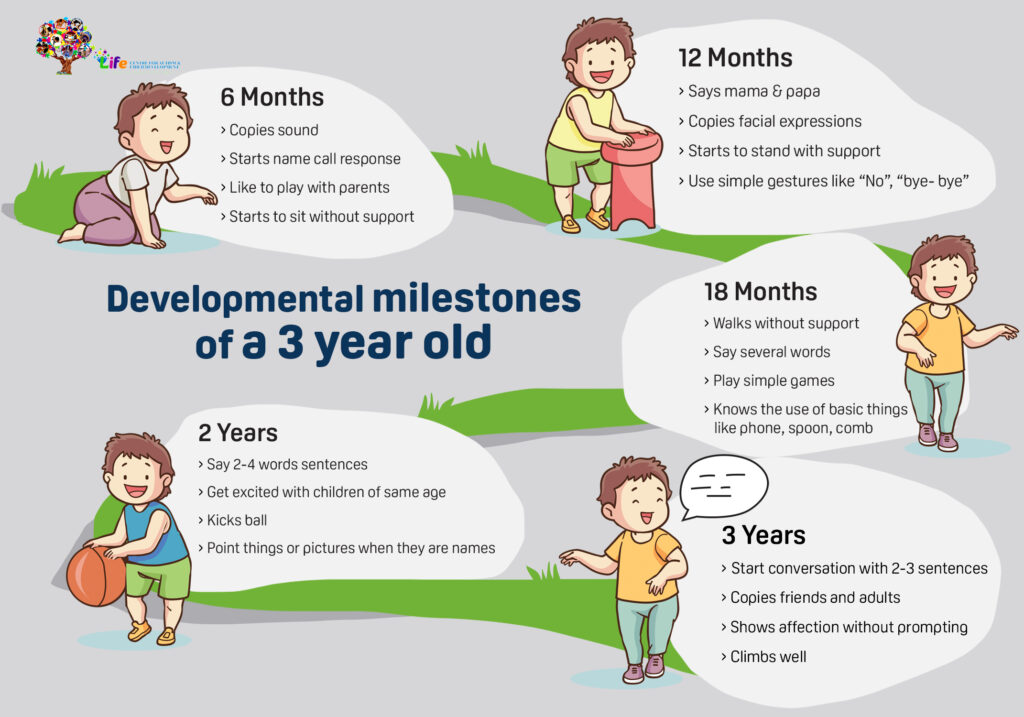
Developmental milestones are key skills and abilities that most children achieve at specific ages. At three years old, children undergo significant growth and development in various areas:
- Social and Emotional: At this age, a 3-year-old becomes more interested in playing with other children and engaging in cooperative activities. They start to show empathy and understanding of others’ feelings, and they may express their emotions more clearly. They become increasingly independent and assertive, but they may also experience moments of frustration and tantrums as they learn to regulate their emotions.
- Language and Communication: A 3-year-old’s language skills expand rapidly. They can speak in more complex sentences, and their vocabulary continues to grow. They start to ask more questions and show interest in learning new words. Their communication becomes clearer, and they can express their thoughts and feelings more effectively. Additionally, they may start using pronouns correctly and understand simple directions.
- Cognitive Development: 3-year-olds show significant advances in their cognitive abilities. They become more curious about the world around them and engage in imaginative play, pretending to be different characters in different situations. They can solve simple problems, sort objects by shape and color, and identify familiar objects and people in pictures. Their memory also improves, allowing them to recall events and experiences more accurately.
- Movement/Physical Development: At 3 years old, children’s gross and fine motor skills continue to develop. They become more coordinated and confident in running, jumping, and climbing. Their hand-eye coordination improves, allowing them to draw basic shapes, use utensils more effectively, and stack blocks. They may also show interest in dancing and other physical activities, as they gain better control over their bodies.
It’s essential to remember that developmental milestones are general guidelines, and each child may progress at their own pace. Some children may reach certain milestones earlier, while others may take a little more time. However, if you have concerns about your child’s development, it’s always a good idea to consult with an early childhood specialist for guidance and support.
Diagnosis and Treatment For Autism In Kids
There is no particular medical test to diagnose this condition. But parents need to concentrate on certain points to identify this condition. Also, the pediatrician would notice your child’s developmental milestones and ensure to raise a red flag if they found anything going haywire. If any symptoms arise, the pediatrician would refer you to a specialist, who would then help you take care of your child while providing the right therapies and treatment.
Parents can compare the condition of their kids with other kids of the same age by observing their social behavior, development of language, speech, hearing, whether the child is understanding or following commands or not, etc. However, it is important to understand that not every delay in achieving a developmental milestone means autism in children.
Genetic testing is also recommended by certain professionals, but there is no reliable evidence that it would give the right diagnosis without further causing any side effects.
CTA – If you have concerns about your child possibly having autism, don’t wait any longer. Reach out to us today! Take the first step towards understanding and supporting your child’s development. Contact us now.
Treatment Solution
There is no cure for this condition, but intensive early treatment can make a big difference to your child’s life. However, advanced autism treatment centers claim that no one size fits all when it comes to treating autism with different types of therapies. The best treatment centers for autism use a combination of occupational therapy for autism, play therapy for autism, speech therapy for autism, and behavioral therapy for kids to treat autism in different individuals depending on the severity of the symptoms and more.
Acceptance is the key to early diagnosis and treatment. Parents need to accept the condition of their children. Experts believe that family therapy can be helpful where parents can help by improving a child’s ability to learn and supporting overall development.
However, if the issue persists, it is recommended to take the child to one of the best treatment centers for autism, where you will be guided on the best course of action.
How does the Life Center for Autism help kids who suffer from Autism?
The Life Center for Autism is one of the best treatment centers for Autism in Kottayam, Kerala. We have been helping and treating children with autism for several years. From reading the early signs of autism in kids to being the best autism assessment center and treatment provider, we are a one-stop solution to getting the best care for your autistic child.
Our qualified and experienced staff excels in different types of therapies, including speech therapy, play therapy and behavioral therapy for autism We take a customized approach to treating a child based on their needs and the extent of their autism spectrum condition.
We understand the hardships of dealing with autism and also the ways to make life easier for both the child and the parents. To maintain a high level of transparency and offer peace of mind to parents, we allow them to observe their child’s therapy sessions. We can expertly read the signs of autism and curate an individual approach to treatment.
Our counselors and educators also help parents with an autistic child understand the best ways to help their children. We are big on educating parents on autism and making them accept that their child is specially-abled and demands due care and attention.
Finally, we are the most affordable advanced treatment center for autism in Kottayam. Despite charging a nominal fee, we ensure that we offer the best quality services and never compromise the well-being of your children.
Therapies we provide
At the Life Center for Autism, we are best known for offering a wide range of therapies for autism. Our seasoned and professional staff curates a special treatment for children with autism that includes:
1. Occupational therapy
Focused on improving cognitive, physical, social, and motor skills, occupational therapy enables an individual to perform different tasks independently. Our occupational therapy aims to improve learning abilities, playing skills, and the feeling of self-love and care. Core activities included in occupational therapy include encouraging children to eat themselves, bathe and get dressed on their own, use the bathroom independently, and focus on creative skills like coloring, drawing, and writing.
2. Speech therapy
Children who struggle with language and communication issues due to autism are recommended for speech therapy. The aim is to improve the verbal, nonverbal, and social communication abilities of the children. While many children with autism find difficulty speaking, others cannot interpret body language, facial expressions, and more.
3. Play therapy
Play therapy for autism is very effective in helping autistic children express themselves. It improves the social and emotional skills of the child as well as their ability to grasp language and communication skills. Some common play therapies for autism include floor time, integrated play groups, Joint attention symbolic play engagement and regulation (JASPER) therapy, and more.
4. Special Education
Children with autism have every right to learn and excel. However, when put in a typical classroom environment, they are prone to wither, so ensuring that a child showing signs of autism gets the right education in a safe and comfortable environment is important. This is where special education for autism comes into the picture. At the Life Center for Autism, we have special educators to offer the best quality education to kids with autism. We emphasize reading the early signs of autism in kids because the earlier you detect it, the better the future you can give your child with special education.
5. Sensory integration
To enable autistic children to utilize their senses at their best, they are offered sensory integration therapy. In this therapy, the kids are taught how to work on their taste, smell, touch, sight, and hearing abilities. This therapy is especially effective in treating repetitive or challenging behavior in kids.
6. Behavioral therapy
In behavioral therapy for autism, children are exposed to a mixture of therapies to ensure they have enhanced powers of communication and expression. Under this therapy, children are assigned short and simple tasks and rewarded upon completion. It is a one-on-one therapy that is very effective.
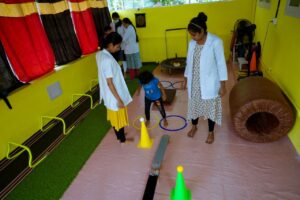
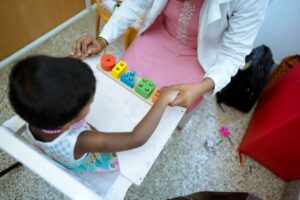
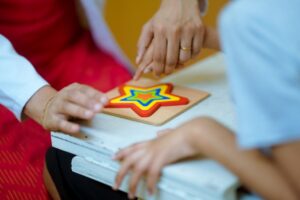
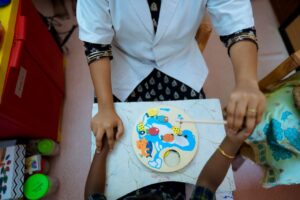
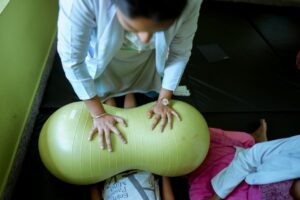
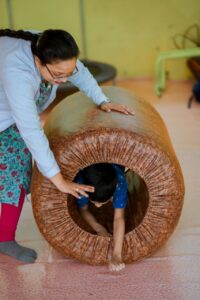
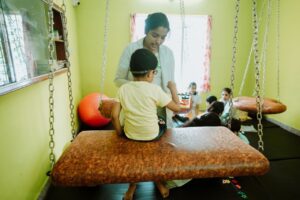
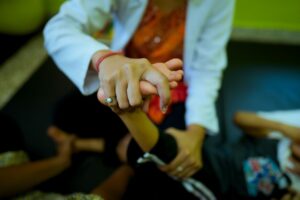
Wrapping Up!
Autism is not a disease, but when left unattended, it can be worse than a chronic disease. It affects both the person with the disability and the people around them. The early signs of autism in kids are easy to read and interpret. You can always take professional help from a reliable autism assessment center and waste no time in offering your child due care and treatment. At the Life Center for Autism, we help you assess your child for signs of autism and then treat the problem efficiently. We are one of the best treatment centers for autism in Kottayam, and you can trust us for the well-being of your child.

